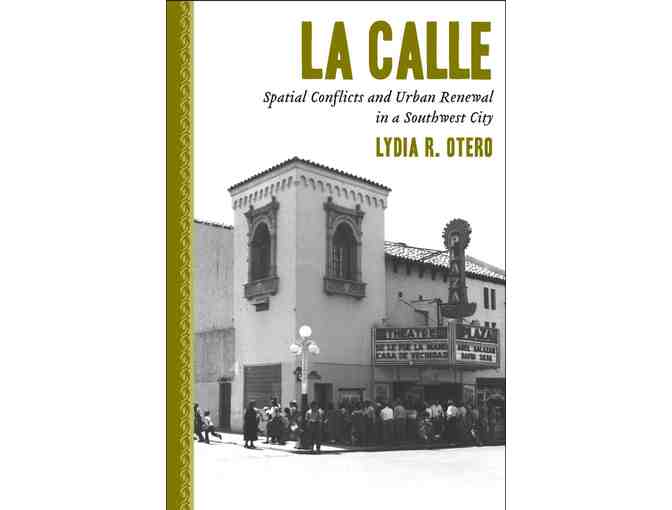Books
La Calle: Spatial Conflicts and Urban Renewal in a Southwest City - by Lydia R. Otero
- Item Number
- 202
- Estimated Value
- 25 USD
- Sold
- 17 USD to kk4bf4d7b
- Number of Bids
- 11 - Bid History
Item Description
La Calle
Spatial Conflicts and Urban Renewal in a Southwest City
By Lydia R. Otero
288 pp. / 6.00 in x 9.00 in / 2010
Paper (978-0-8165-2888-2)
On March 1, 1966, the voters of Tucson approved the Pueblo Center Redevelopment Project 'Arizona's first major urban renewal project' which targeted the most densely populated eighty acres in the state.
|
For close to one hundred years, tucsonenses had created their own spatial reality in the historical, predominantly Mexican American heart of the city, an area most called "la calle." Here, amid small retail and service shops, restaurants, and entertainment venues, they openly lived and celebrated their culture. To make way for the Pueblo Center's new buildings, city officials proceeded to displace la calle's residents and to demolish their ethnically diverse neighborhoods, which, contends Lydia Otero, challenged the spatial and cultural assumptions of postwar modernity, suburbia, and urban planning.
Otero examines conflicting claims to urban space, place, and history as advanced by two opposing historic preservationist groups: the La Placita Committee and the Tucson Heritage Foundation. She gives voice to those who lived in, experienced, or remembered this contested area, and analyzes the historical narratives promoted by Anglo American elites in the service of tourism and cultural dominance.
La Calle explores the forces behind the mass displacement: an unrelenting desire for order, a local economy increasingly dependent on tourism, and the pivotal power of federal housing policies. To understand how urban renewal resulted in the spatial reconfiguration of downtown Tucson, Otero draws on scholarship from a wide range of disciplines: Chicana/o, ethnic, and cultural studies; urban history, sociology, and anthropology; city planning; and cultural and feminist geography.
The University of Arizona Press, founded in 1959 as a department of the University of Arizona, is a nonprofit publisher of scholarly and regional books. As a delegate of the University of Arizona to the larger world, the Press publishes the work of scholars wherever they may be, concentrating upon scholarship that reflects the special strengths of the University of Arizona, Arizona State University, and Northern Arizona University.
Item Special Note
Winning bidders must pick up at the KXCI Studios or pay for shipping.
KXCI 91.3FM Community Radio stores data...
Your support matters, so KXCI 91.3FM Community Radio would like to use your information to keep in touch about things that may matter to you. If you choose to hear from KXCI 91.3FM Community Radio, we may contact you in the future about our ongoing efforts.
Your privacy is important to us, so KXCI 91.3FM Community Radio will keep your personal data secure and KXCI 91.3FM Community Radio will not use it for marketing communications which you have not agreed to receive. At any time, you may withdraw consent by emailing Privacy@frontstream.com or by contacting our Privacy Officer. Please see our Privacy Policy found here PrivacyPolicy.

